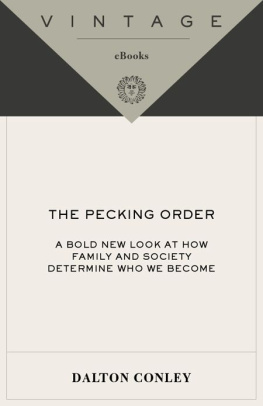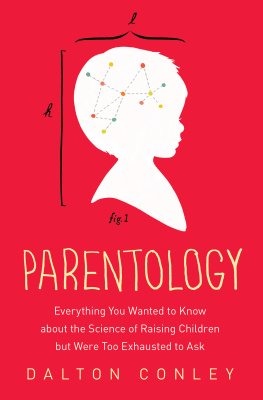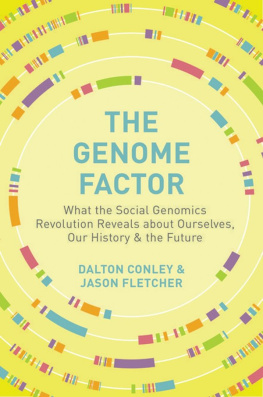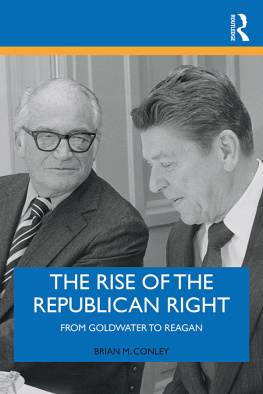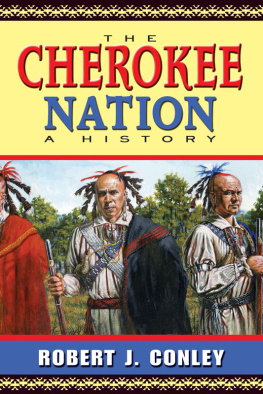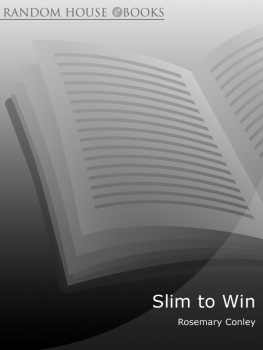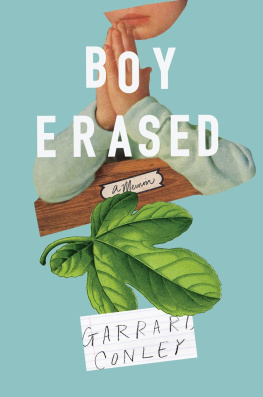Dalton Conley is director of the Center for Advanced Social Science Research and professor of sociology and public policy at New York University. He is also an adjunct professor of community medicine at Mount Sinai School of Medicine and a research associate at the National Bureau of Economic Research. His essays have appeared in The New York Times, the Los Angeles Times, and Salon, among other publications. His previous books include Honky and Being Black, Living in the Red: Race, Wealth, and Social Policy in America. Conley lives in New York City.
CONTENTS
1. INEQUALITY STARTS AT HOME :
An Introduction to the Pecking Order
2. BUTTERFLIES IN BIALYSTOK, METEORS IN MANILA :
The Nature-Nurture Red Herring
3. LOVE IS A PIE :
Birth Order and Number of Siblings
4. DEATH, DESERTION, DIVORCE :
When Bad Things Happen to Good Families
5. MOVIN ON UP, MOVIN ON OUT :
Mobility and Sibling Differences
6. LEGACIES AND ROLE MODELS, FAT AND SKIN :
Gender Dynamics in the Family
7. RANDOM ACTS OF KINDNESS (AND CRUELTY) :
Outside Influences on Sibling Success
8. FROM TRIBES TO MARKETS :
Conclusions, Implications, and Insinuations
ABOUT THE PECKING ORDER :
A Technical Appendix
ONE
INEQUALITY STARTS AT HOME
An Introduction to the Pecking Order
Let me start with a story.
Once upon a time a future president was born. William Jefferson Blythe IV entered the world one month premature but at a healthy six pounds and eight ounces. At twenty-three, his mother, Virginia, was young by today's standards, but perhaps a touch old for Arkansas in the 1940s. She was a widow, so times were tight during Bill's early years. In fact, times would be tough during all of Bill's childhood. Nonetheless, he seemed destined for great things. According to family lore, in second grade Bill's teacher predicted that he would be President someday.
His mother eventually married Roger Clinton, but that didn't make life any easier for Bill. Roger was a bitterly jealous alcoholic who often became physically abusive to his wife. Bill cites the day that he stood up to his stepfather as the most important marker in his transition to adulthood and perhaps in his entire life. In 1962, when Bill was sixteen, Virginia finally divorced Roger, but by then there was another Roger Clinton in the family, Bill's younger half brother.
Though Bill despised his stepfather, he still went to the Garland County courthouse and changed his last name to Clinton after his mother's divorce from the mannot for the old man's sake, but so that he would have the same last name as the younger brother he cherished. Though they were separated by ten years, were only half siblings, and ran in very different circles, the brothers were close. The younger Roger probably hated his father more than Bill did, but he nonetheless started to manifest many of the same traits as he came of age. He was a fabulous salesman: at age thirteen, he sold twice as many magazines as any of his classmates for a school project, winning a Polaroid camera and a turkey for his superior effort. He also had an affinity for substance abuse: by eighteen, he was heavily into marijuana. During Bill's first (unsuccessful) congressional campaign in 1974, Roger spent much of his time stenciling signs while smoking joints in the basement of campaign headquarters.
As Bill's political fortunes rose, Roger's prospects first stagnated and then sank. He tried his hand at a musical career, worked odd jobs, and eventually got into dealing drugs. And it was not just pot; in 1984, then-governor Bill Clinton was informed that his brother was a cocaine dealer under investigation by the Arkansas state police. The governor did not stand in the way of a sting operation, and Roger was caught on tape boasting how untouchable he was as the brother of the state's chief executive. Then the axe fell. After his arrest, Roger was beside himself in tears, threatening suicide for the shame he had brought upon his familyin particular, his famous brother. Upon hearing this threat Bill shook Roger violently. (He, in truth, felt responsible for his brother's slide.)
The next January, Roger was sentenced to a two-year prison term in a federal corrections facility in Fort Worth, Texas. Bill describes the whole ordeal as the most difficult episode of his life. David Maraniss the author of First in His Class, the most comprehensive biography of Clinton to datesummarizes the family situation as follows:
How could two brothers be so different: the governor and the coke dealer, the Rhodes scholar and the college dropout, one who tried to read three hundred books in three months and another who at his most addicted snorted cocaine sixteen times a day, one who could spend hours explaining economic theories and another whose economic interests centered on getting a new Porsche? In the case of the Clinton brothers, the contrasts become more understandable when considered within the context of their family history and environment. They grew up in a town of contrast and hypocrisy, in a family of duality and conflict. Bill and Roger were not so much opposites as two sides of the same coin.

